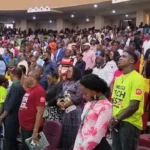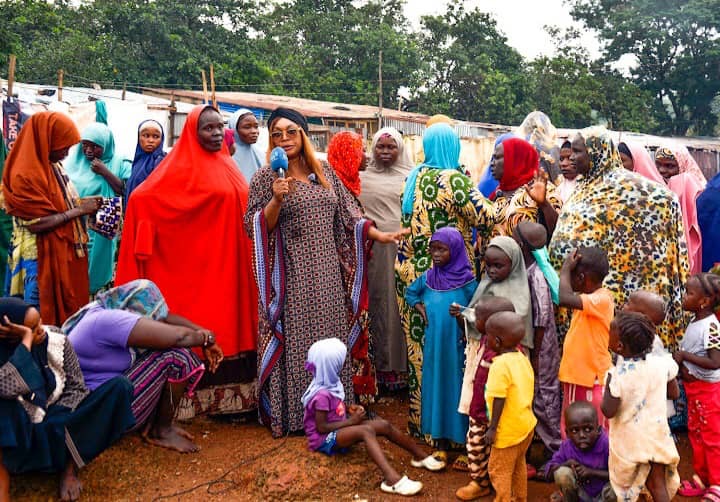By Victor Okoye
Internally Displaced Persons (IDPs) at the Durumi Camp in Abuja have appealed for urgent government intervention and access to farmland to support women-led households.
The appeal was made during a visit on Thursday by Lily Grace, a UK-based philanthropist and founder of Chat My Cause Farmers’ Initiative International.
Grace said many displaced women had been neglected for over a decade, without sustainable support or livelihood opportunities.
“These women are not asking for handouts. They want land to farm, feed their children, and live in dignity,” she said.
She urged the Federal Government, the National Commission for Refugees, Migrants and Internally Displaced Persons, the National Emergency Management Agency (NEMA), and other stakeholders to make farmland accessible near the camp.
“Give them land, and we will support them with seeds, tools, and training,” she added.
Grace said the living conditions at Durumi Camp was a “long-term humanitarian failure”, noting that displaced families lived in makeshift shelters, faced repeated demolitions, and lacked access to farmland.
She called on President Bola Tinubu, the FCT Minister, and relevant agencies to allocate land close to the camp to enable farming activities.
Halima Abubakar, the Women’s Coordinator in the camp, said most displaced women were farmers before insurgency forced them from their communities.
“We know farming. That’s our skill. But here, there’s no land and no way to transport ourselves to distant areas,” she said.
Abubakar said over 3,500 women and children live in the camp, surviving mainly on short-term donations.
“We need land. Even small plots will help us grow food and support our families,” she added.
Another displaced woman, Liyatu Ayua, shared her experience.
“My entire family was killed. Only my father survived. We now sleep in shacks, exposed to the rain and sun,” she said.
Similarly, Fatima Abubakar, who once farmed maize and groundnuts, said she now depends on charity.
“I never begged before. I want to work, but I have no land or tools,” she said.
Aisha Bello also expressed frustration but remained hopeful.
“I still keep seeds in a small jar, waiting for the day we get land,” she said.
An elderly resident, Idris Ibrahim, thanked Grace for her visit.
“Many are called, but few are chosen. Thank you for remembering us,” he said.
Grace ended her visit with a plea to leaders and stakeholders to prioritise displaced women’s welfare.
“These women are your mothers, sisters, and daughters. The time to act is now,” she said.
She further urged the private sector, NGOs, and development partners to support long-term solutions, including farmland access and livelihood empowerment.
Efforts by Chat My Cause to obtain comments from the Refugee Commission and NEMA were unsuccessful. (NAN)
Edited by Tosin Kolade











